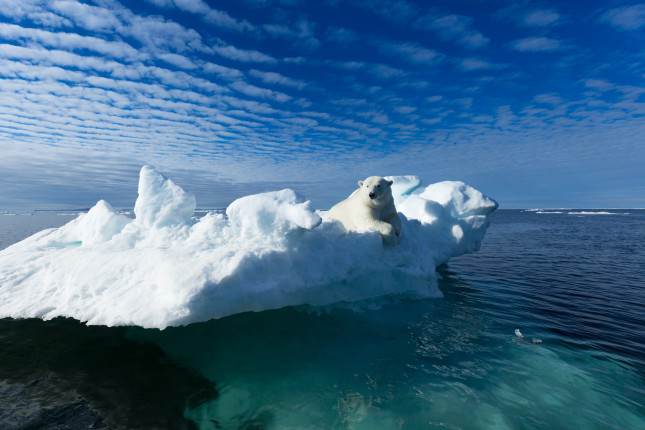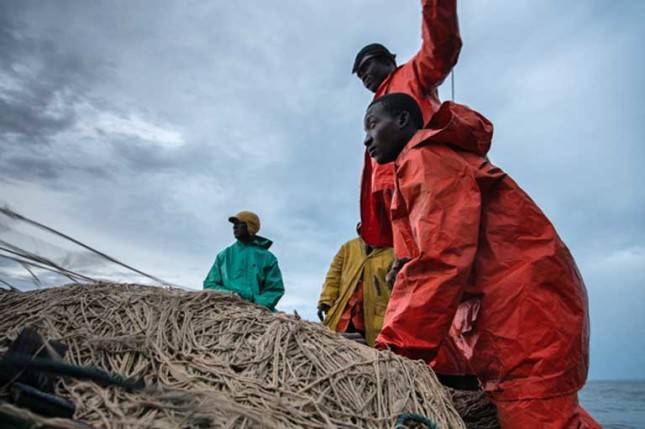-
Elizabeth L. Chalecki, The Internationalist
An Internationalism that Protects: Why We Need to Reboot the Baruch Plan for Geoengineering
›March 26, 2021 // By Wilson Center Staff
New planet-changing geoengineering technology is available to help humanity combat an existential security threat. However, like atomic fission, this technology is not to be jumped at without caution.
This year is the seventy-fifth anniversary of the Baruch Plan. Almost no one knows this, or if they do, they probably don’t remember who Bernard Baruch was, or what his eponymous plan was for. But the Baruch Plan of 1946 was our first and last real attempt at world governance of nuclear weapons. Three-quarters of a century later, the ill-fated effort carries important lessons for addressing the crisis of climate change.
-
Zafar Imran, Le Monde diplomatique
Climate Change in the Indian Farmers’ Protest
›
The ongoing farmers’ movement in India has taken the world’s largest democracy by storm. Hundreds of thousands from all over the country have laid siege to New Delhi for more than two months. As both the protestors and the government dig their heels in, the chances of confrontation and violence are increasing by the day.
-
Michael Standaert, Ensia
How effective are China’s attempts to reduce the risk of wildlife spreading disease to humans?
›
Nearly a year ago, somewhere in China, a previously unknown virus made its way from a wild animal into a human host. There it found not only a hospitable home, but also an opportunity to spread trillions of copies of itself, eventually replicating to become the global Covid-19 pandemic.
That outbreak, now having infected more than 46 million people around the world, has been the impetus for a series of actions taken by the Chinese government to — in theory — get a handle on zoonotic disease outbreaks now and in the future.
-
The Top 5 Posts of October 2020
›
The Grand Ethiopian Renaissance Dam (GERD) is both a point of contention and an opportunity for collaboration among countries sharing the Nile river basin’s water resources. In our most read post this month, Matthew Gallagher covers a recent UNC event with Wilson Center Global Fellow Aaron Salzberg on the intricacies of the GERD and the importance of stakeholder diplomatic processes in shaping relationships around the dam.
-
Sharon Guynup, Mongabay
Brave New Arctic: Sea ice has yet to form off of Siberia, worrying scientists
›
At this time of year, in Russia’s far north Laptev Sea, the sun hovers near the horizon during the day, generating little warmth, as the region heads towards months of polar night. By late September or early October, the sea’s shallow waters should be a vast, frozen expanse.
But not this year. For the first time since records have been kept, open water still laps this coastline in late October though snow is already falling there.
-
Sharon Guynup, Mongabay
Landed by the thousands: Overfished Congo waters put endangered sharks at risk
›October 27, 2020 // By Wilson Center Staff
In a video clip, seven fishermen climb into a wooden “Popo” boat that’s beached on the Republic of the Congo’s sandy shoreline. They start up the motor of the 40-foot, limo-length motorized canoe and head out into the Atlantic. The men aboard the weathered craft — its blue paint chipped and faded by years of salt and sun — could be out for a week.
-
The Top 5 Posts of August 2020
›
As Beijing prepares to host the 2022 Winter Olympics, China’s environmental activities are once again on center stage. The Wilson Center’s China Environment Forum took the top spot this month with Karen Mancl and Richard Liu’s coverage of the new program report, “Closing the Loop on China’s Water Pollution,” which details what China can learn from New York, Washington, D.C., and Singapore, to advance its wastewater and carbon reduction targets.
-
Sharon Guynup, Mongabay
Brazilian Amazon Drained of Millions of Wild Animals by Criminal Networks
›August 18, 2020 // By Wilson Center Staff
The Brazilian Amazon is hemorrhaging illegally traded wildlife according to a new report released last month. Each year, thousands of silver-voiced saffron finches and other songbirds, along with rare macaws and parrots, are captured, trafficked and sold as pets. Some are auctioned as future contestants in songbird contests. Others are exported around the globe.
Showing posts by Wilson Center Staff.











